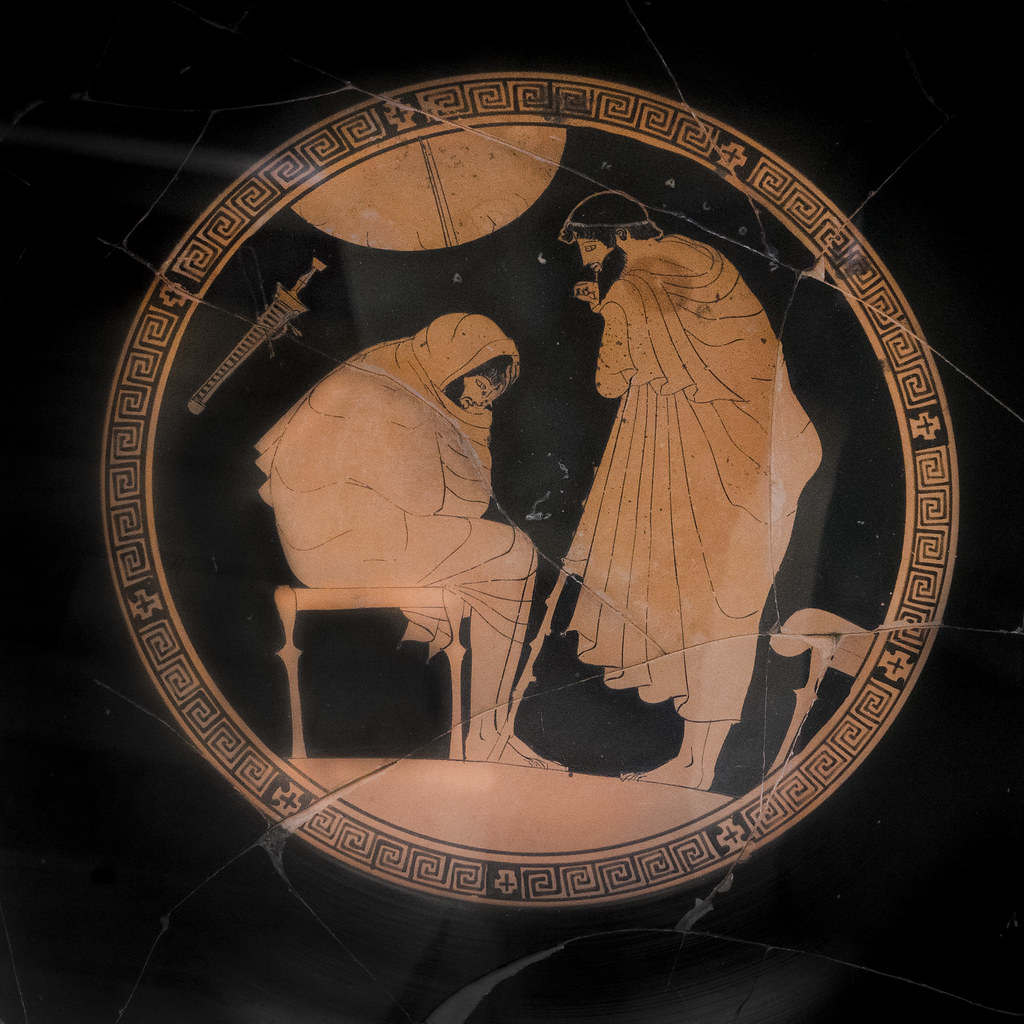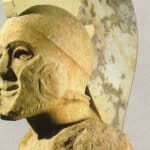Are Odysseus and Ulysses two different heroes of antiquity, locked in some kind of scholarly standoff? The answer, dear reader, is a resounding “no.” They are, in fact, the same cunning warrior, the same epic voyager, simply known by two different names. This article unravels the mystery of this dual identity, exploring the linguistic and cultural journey of a single hero known across millennia.
One Hero, Two Names: Unraveling the Odysseus/Ulysses Puzzle
The name “Odysseus” (Ὀδυσσεύς, pronounced, roughly, oh-DISS-ee-us) echoes through the halls of ancient Greek literature, forever linked to Homer’s Odyssey. This epic poem chronicles the king of Ithaca’s perilous ten-year journey home after the Trojan War. But as this captivating tale spread, it crossed borders and languages, eventually reaching the Roman Empire. The Romans, with their penchant for adapting and adopting, gave Odysseus a Roman makeover, transforming his name into “Ulysses” (/juːˈlɪsiːz/ yoo-LISS-eez). Think of it like a beloved novel translated into a new language—the story remains the same, but the words shift to resonate with a different audience. Delve into the rich history of the peplo and further understand ancient Greek culture.
From Ithaca to Rome: Tracing the Name’s Transformation
The transition from Odysseus to Ulysses wasn’t a sudden shift. Scholars suggest the Etruscans, who thrived in pre-Roman Italy, likely played a role in this linguistic evolution. Their version, something like “Uthuze,” probably influenced the Roman adaptation. Imagine the name whispering through different cultures, subtly changing with each retelling until it settled into the familiar “Ulysses.” It’s a testament to the fluidity of language and the fascinating ways stories, and names, evolve as they travel through time.
Cracking the Code: The Crossword Clue and Its Significance
The phrase “Odysseus vis-à-vis Ulysses” likely gained modern prominence thanks to a New York Times crossword puzzle. The clue, with its touch of intellectual flair ( “vis-à-vis” meaning “in relation to”), playfully hinted at the dual identities of this iconic figure. The answer, of course, was “SAMEHERO,” a succinct and satisfying solution for crossword enthusiasts (particularly those tackling the puzzle around September 17, 2024). This seemingly simple clue sparked a renewed interest in the subtle nuances of classical literature, demonstrating the unexpected ways a puzzle can unlock a world of historical and cultural exploration.
Who Was This Odysseus/Ulysses Fellow Anyway?
Beyond the name game, who was this legendary figure? Odysseus/Ulysses was more than just a name; he was a king, a warrior, a strategist cunning enough to devise the Trojan Horse. He was a man of many faces: a brave soldier, a devoted husband to Penelope, a loving father to Telemachus. His journey home, however, became his defining legend. Imagine battling mythical monsters, resisting the allure of seductive sorceresses, navigating treacherous seas—all while desperately longing for home. Explore the opulent world of the mughal waterpipe and discover the rich traditions.
The Odyssey: A Timeless Tale of Resilience and Resourcefulness
Odysseus’s odyssey wasn’t merely a physical journey; it was a test of character, a testament to human resilience. His encounters with the Cyclops, the Sirens, and the enchantress Circe are more than just fantastical adventures; they embody universal human struggles with temptation, loss, and the enduring desire for belonging. These trials, whether interpreted literally or metaphorically, resonate with us even today, reminding us of our own metaphorical sirens and cyclops.
The Meaning Behind the Name: Exploring Etymology and Epithets
The etymology of “Odysseus” remains a topic of scholarly debate. Some connect it to the Greek verb “ódyssomai,” meaning “to be wrathful” or “to be hated.” Does this suggest something of his character, a hint of the trials he would endure? His epithets—”wily Odysseus,” “resourceful Odysseus”—offer further glimpses into his complex nature. While “Ulysses” likely stems from Etruscan and Latin adaptations of the original Greek, “Odysseus” remains shrouded in some mystery. The ongoing research into ancient Greek suggests possible connections to suffering, adding another dimension to his name.
Two Names, Two Perspectives? A Deeper Dive
Does having two distinct names add symbolic weight to the story? Some scholars believe it represents the hero’s adaptability, his ability to navigate different cultures and challenges. Perhaps it reflects the multifaceted nature of his personality: the warrior, the king, the husband, the father, the survivor. It’s a question that encourages us to look beyond the surface and explore the rich tapestry of his story.
The Enduring Legacy of Odysseus/Ulysses
Odysseus vis-à-vis Ulysses. Two names, one incredible journey. This ancient tale continues to captivate modern audiences, reminding us of the power of the human spirit to overcome adversity. His struggles, his resilience, and his unwavering desire for home resonate across centuries, solidifying his place as one of literature’s most enduring heroes. While some details, like the precise meaning of “Uthuze,” remain uncertain, ongoing research may provide further insights. Acknowledging these complexities and uncertainties enrich the exploration of this topic.
- Mastering Leader in Spanish: The Complete Guide - April 19, 2025
- Uncovering Surprising Parallels: England Size Compared to US States - April 19, 2025
- Old Mexico Map: Border Shifts 1821-1857 - April 19, 2025
















